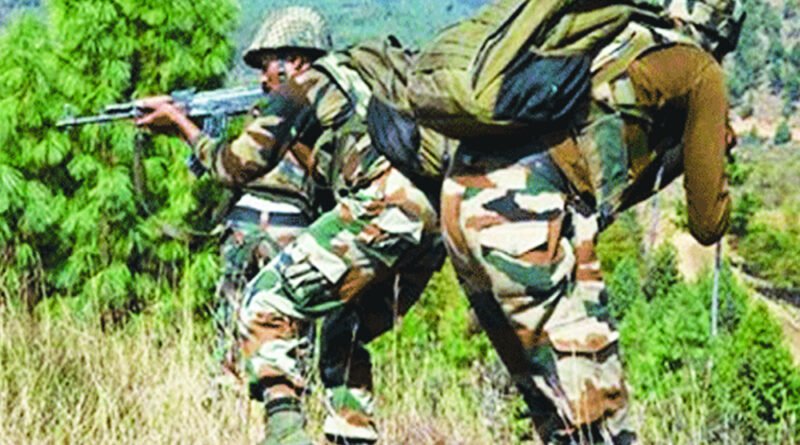Beware of Pak’s softening stand
It is a temporary move to tide over the crises Pakistan is facing. The moment its rulers find some relief, the agreement will turn into a mere piece of paper
One mistake Indians must not make is to read Pakistan through Indian eyes. Normally, anything that leads to peace should be welcome. Similarly, we should welcome the fact that Pakistan has agreed to cessation of the ongoing hostilities with us and honour the ceasefire pact of 2003.
Yet, one must interject a note of caution here. This is because quite a few Indians, including expert observers, have interpreted the venom from Islamabad on Kashmir for years as revenge for India dismembering their country in 1971. In actual fact, as soon as the anger of the defeat was forgotten, the Pakistanis were relieved that the “dark short people” — as the Bengalis are contemptuously referred to by Pakistanis — who were a majority of their population, were finally gotten rid of.
Poet Mohammad Iqbal, who was also a leading light of the Muslim League, as its president had in 1930 at Prayagraj (then Allahabad) proposed a separate Muslim homeland which comprised only the north western provinces. He made no mention of Bengal or any part thereof. The larger Pakistan was for MA Jinnah’s glorification; he began by dreaming of six provinces, four in the west and two in the east, including Assam. Through his League colleague who was the Premier of Assam for several years after 1939, Mohd Saad Ali, he had nearly succeeded in recording that the adivasis were not Hindu but animists. This was to bring down the Hindu percentage of population and draw Assam into Pakistan when the moment of decision came. When Jinnah could not get Assam, except the district of Sylhet, Bengal and Punjab were divided by Sir Cyril Radcliffe, the lawyer dispatched by London. Jinnah was sorely disappointed at getting what he called “a moth-eaten Pakistan”.
Here, it has to be iterated that Jinnah did not represent the ultimate choice of any Pakistani except the Gujarati-speaking businessmen like the Khojas and Memons who wanted to get rich quickly by avoiding competition against Indian business communities and crossing over to the new State, where they would have to compete only against the Punjabi and Sindhi farmers. For the rest, Jinnah pleaded brilliantly for those Muslims who wanted or half-wished a separate homeland. This was Jinnah’s role in actuality; his fee was his place in history’s hall of fame. Fortunately for him, he died within 13 months of Independence. The word mohajir, a term for Muslims from Uttar Pradesh (UP) and Bihar migrating to Pakistan, came into circulation soon thereafter. But mohajirs soon found themselves not only unwelcome but also the target of ethnic hostility in the newly carved out Muslim homeland. Jinnah’s deputy Liaquat Ali Khan, from UP, was assassinated a mere four years after Pakistan had been carved out.
What prevails in Pakistan now is the will of the West Punjabis who are two-thirds of the country’s population. Their need for Kashmir has been to keep the country together and paper over their dominance of everything, which is now a bone of contention. Plus, they portray India as a great threat to the survival of Pakistan and thus justify the indispensability of the Army as the country’s guardian.
If one looks at the latest ceasefire agreement, one would conclude that for Islamabad, it is a temporary move to hopefully tide over the crises the country is facing. The moment Pakistan’s rulers are able to find some way of relief for these crises, the current agreement will turn into a mere piece of paper. One reason for Pakistan’s softening could be that its rulers realise that China has overplayed its hand, whether with India, Taiwan or the South China Sea, and that the US has reacted strongly, though so far only in words. Otherwise, there is no explanation for Beijing to kick off a confrontation in Ladakh during the winter. It could have waited until after the spring to exercise its options which were three: To try and grab some strategically useful land points, to ease off by extracting some other concessions or by continuing to harass the Indian forces by creating local points that would pose a threat. Similarly, Islamabad wants to cool off vis-à-vis New Delhi until China warms up again after, say, arriving at some settlement with the US. If not, the rulers would wait for circumstances to change; for a true momin, his faith in Allah the Merciful is infinite. We must not compare it with the mind of a thinking or reticent Hindu.
Another possibility might be that Pakistan’s real ruler, General Bajwa, wants to ease India’s pressure on his eastern Indian front and use it to settle his scores with Baluchistan, like General Tikka had tried to do in East Pakistan in 1971. Bajwa may have been advised that the Baloch province is so rich in resources that it could greatly help in solving Pakistan’s economic problems. But to exploit these resources would take time, peace and complete control. I concede that this possibility may sound too farfetched, but unless Islamabad takes some drastic steps, how can it keep the economic wheels of Pakistan rolling? If it depends on Chinese loans, Pakistan could become a Beijing protectorate inch by inch, as one has already begun to see with the China Pakistan Economic Corridor coming into play.
(The writer is a well-known columnist and an author. The views expressed are personal.)
Source: The Pioneer




